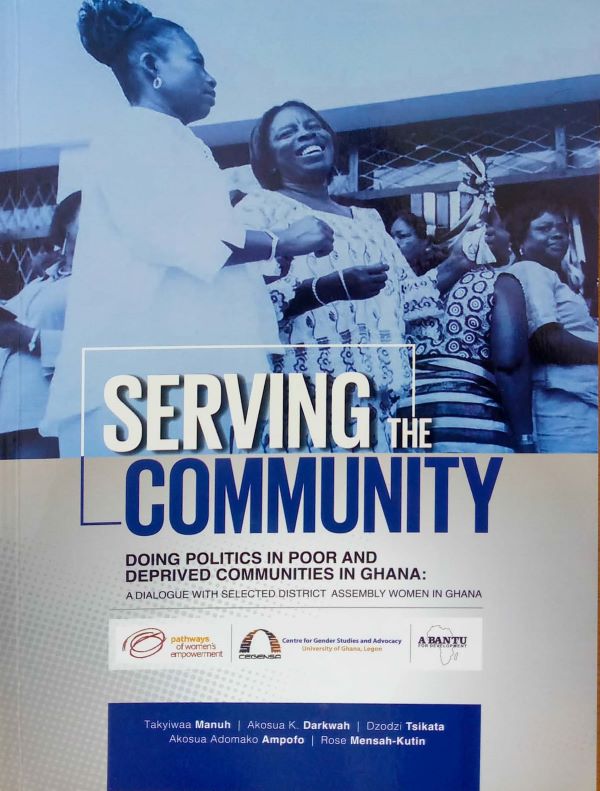Serving the Community: Doing Politics in Poor and Deprived Communities in Ghana - A dialogue with selected District Assembly women in Ghana
Abstract
There has been little exploration of the lived experiences of women who have engaged politically in Ghana, particularly politics in 1992. Such a focus is significant in conceptualizing the broader scope of gender and political representation and their intersectionality. It allows us to analyze the pathways of empowerment part of society and decision-making for their communities, as well as being sources of power for themselves, their families, and their constituents.
This monograph discusses the decentralization process in Ghana with a focused analysis on the participation of women in representative politics. In particular, the study explores the pathways to political power of a sub-set of women in District Assemblies in Ghana as well as the implications of political power of themselves and their communities. It aims to contribute a grounded account of the factors enhancing or hindering opportunities for women’s political apprenticeship at the local level and of the community, local and national dynamics supporting women’s access to political leadership and women’s use of their power. The study also examines the spaces that provides opportunities for women’s political engagement: how these influence women’s experiences and practice of politics and conceptions of their roles, as well as the kinds of power that women can claim, and what they do with it once they are in power. This examination is undertaken against the backdrop of the continuing low participation rates for women in local and national governance in Ghana.
It is hoped that the findings from the study will provide insight into micro-level factors influencing women’s political engagements and help build the constituencies to support women’s greater political participation and effectiveness.
The study emphasizes the use of interviews as narratives to further unite the personal and political pathways of women’s empowerment and why this may be important in understanding broader relationships of family/household dynamics, education, religion and gender in Ghanaian women’s everyday lives and their empowerment. In addition, the use of narratives and media is highlighted as an effective methodological tool to conduct gender and politically-emphasize and encourage the existing participatory action of women in politics as a way to promote further women’s participation, and to build supportive constituencies for politically active women.
Data for the report is derived from a study with selected District Assembly women conducted by Ghanaian researchers in the Pathways of Women’s Empowerment RPC and ABANTU for Development, an African-oriented and gender NGO, to explore their experiences of standing for office in the 2006 District Assembly elections.
The monograph is structured as follows. Following the introduction is a discussion of the historical evolution of decentralization in Ghana, including the limited roles played by women within it. The main features of the decentralization reforms in the 1980s and women’s participation in this new structure are then presented. A brief discussion of the methodologies used in the study highlights the insight derived from using narratives and social media as s a political tool for encouraging political participation. The rest of the monograph presents the life histories of the selected Assembly women, focusing on their family lives and relationships, educational and employment histories and trajectories, their associational lives and their pathways to political power as well as their experiences and conceptions of politics.

